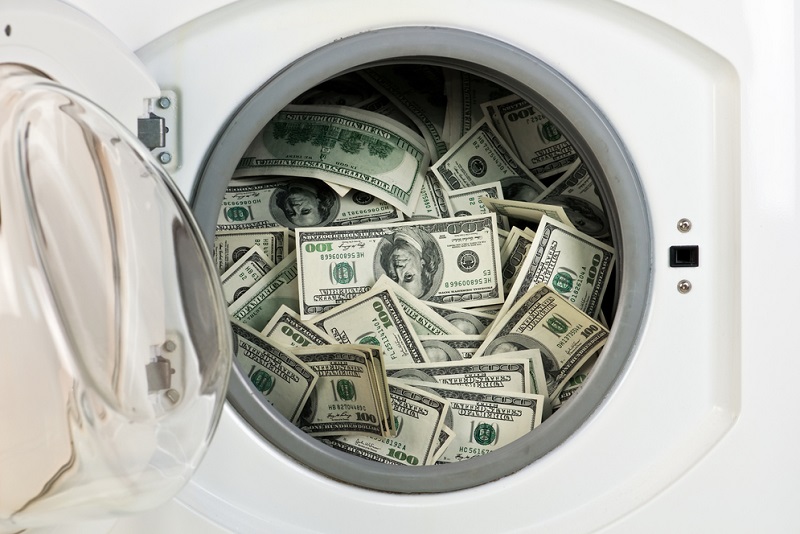BROWSE BY TOPIC
- Bad Brokers
- Compliance Concepts
- Investor Protection
- Investments - Unsuitable
- Investments - Strategies
- Investments - Private
- Features/Scandals
- Companies
- Technology/Internet
- Rules & Regulations
- Crimes
- Investments
- Bad Advisors
- Boiler Rooms
- Hirings/Transitions
- Terminations/Cost Cutting
- Regulators
- Wall Street News
- General News
- Donald Trump & Co.
- Lawsuits/Arbitrations
- Regulatory Sanctions
- Big Banks
- People
TRENDING TAGS
Stories of Interest
- Sarah ten Siethoff is New Associate Director of SEC Investment Management Rulemaking Office
- Catherine Keating Appointed CEO of BNY Mellon Wealth Management
- Credit Suisse to Pay $47Mn to Resolve DOJ Asia Probe
- SEC Chair Clayton Goes 'Hat in Hand' Before Congress on 2019 Budget Request
- SEC's Opening Remarks to the Elder Justice Coordinating Council
- Massachusetts Jury Convicts CA Attorney of Securities Fraud
- Deutsche Bank Says 3 Senior Investment Bankers to Leave Firm
- World’s Biggest Hedge Fund Reportedly ‘Bearish On Financial Assets’
- SEC Fines Constant Contact, Popular Email Marketer, for Overstating Subscriber Numbers
- SocGen Agrees to Pay $1.3 Billion to End Libya, Libor Probes
- Cryptocurrency Exchange Bitfinex Briefly Halts Trading After Cyber Attack
- SEC Names Valerie Szczepanik Senior Advisor for Digital Assets and Innovation
- SEC Modernizes Delivery of Fund Reports, Seeks Public Feedback on Improving Fund Disclosure
- NYSE Says SEC Plan to Limit Exchange Rebates Would Hurt Investors
- Deutsche Bank faces another challenge with Fed stress test
- Former JPMorgan Broker Files racial discrimination suit against company
- $3.3Mn Winning Bid for Lunch with Warren Buffett
- Julie Erhardt is SEC's New Acting Chief Risk Officer
- Chyhe Becker is SEC's New Acting Chief Economist, Acting Director of Economic and Risk Analysis Division
- Getting a Handle on Virtual Currencies - FINRA
ABOUT FINANCIALISH
We seek to provide information, insights and direction that may enable the Financial Community to effectively and efficiently operate in a regulatory risk-free environment by curating content from all over the web.
Stay Informed with the latest fanancialish news.
SUBSCRIBE FOR
NEWSLETTERS & ALERTS
Big U.S. Banks to Push for Easing of AML Rules
America's largest banks are expected to propose a complete overhaul of how financial institutions investigate and report potential criminal activity, arguing that rules imposed in the years after 9/11/2001 and strengthened during the Obama administration are onerous and ineffective.
The Clearing House, a trade association representing the largest U.S. banks - including Goldman Sachs, JPMorgan Chase, and Bank of America - has long raised concerns about the effectiveness of the current rules, but this will be the first time the group has publicly called for them to be revamped.
The Clearing House will propose, as soon as Thursday, a new system under which banks do not investigate and report every transaction that could possibly raise a red flag. Instead, banks would focus on investigating and reporting transactions based on specific concerns relayed to them by law enforcement. Under this approach, banks could shift their focus, as law enforcement priorities change.
- Institutions in different parts of the country may also watch out for certain types of criminal transactions, based on information from authorities. For example, law enforcement could warn banks in the southwest of the United States to look out for drug traffickers moving funds to Mexico, according to people involved in drafting the proposal.
- The Clearing House will also call for the creation of an information-sharing platform that would allow banks to share data among themselves about possible criminal transactions.
- For international banks, the group will push for the U.S. Treasury’s FinCEN to be responsible for investigating compliance, rather than the Office of the Comptroller of the Currency, a main bank regulator.
Under current regulations, financial institutions are required to file a Suspicious Activity Report (SAR) with authorities if they suspect transactions could be part of a crime.
- Faced with record penalties in recent years over failures to alert authorities to criminal activities, banks say they now over-report, filing hundreds of thousands of SARs out of fear of later falling foul of regulators.
- The number of SARs rose from 669,000 in 2013 to almost a million in 2016.
- Complying with anti-money laundering rules costs U.S. companies as much as $8 billion a year.





